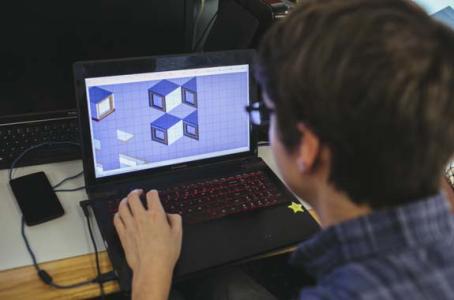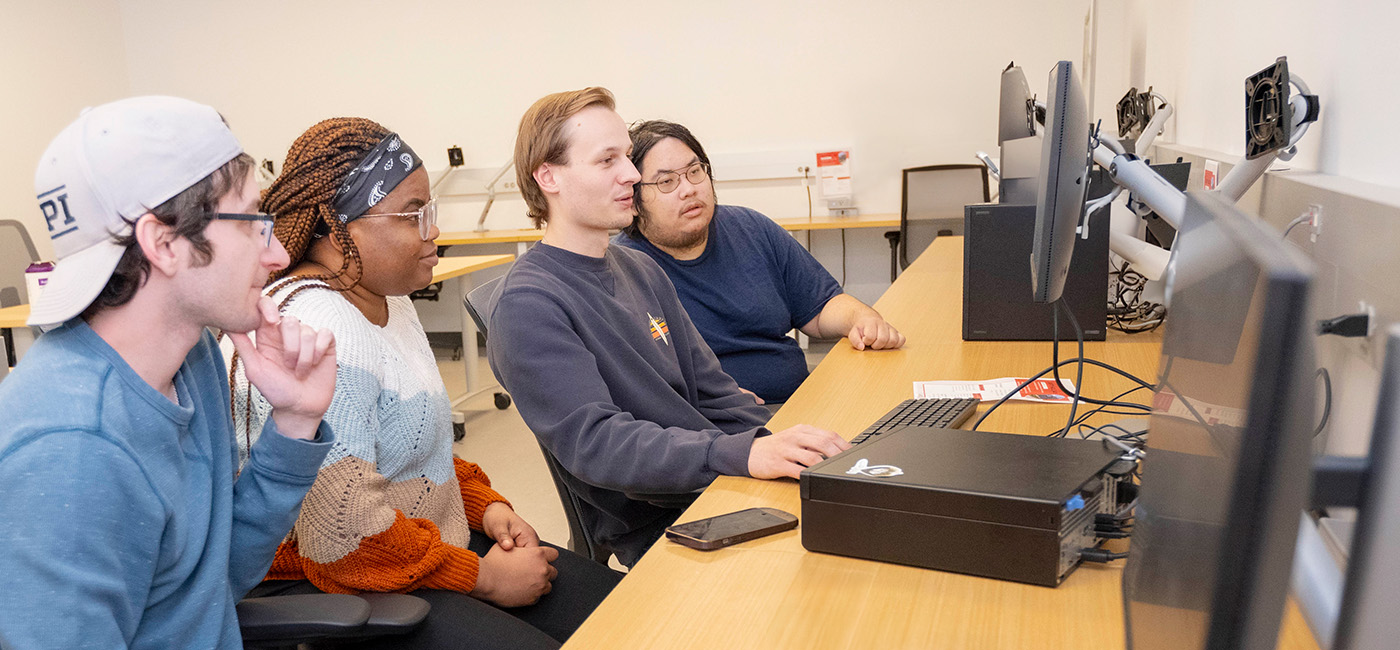Elevate Your Passion for Gaming with Our Master’s in Game Development Program
Are you ready to take your technical knowledge, artistic vision, and passion for gaming to the next level? WPI’s nationally ranked master’s in Interactive Media & Game Development (IMGD) will get you there.
Our interactive media and game development degree prepares professionals who can balance sophisticated design and technical expertise in developing immersive, interactive environments. You may tailor a program to suit your interests and career goals as you learn from and work alongside world-renowned faculty researchers and industry advisors.
Students in our game design master’s program come from various backgrounds, including college graduates continuing their education, game industry professionals aiming for leadership roles, and professionals from other fields retooling their skills.

Curriculum
Through our interdisciplinary game development program, you will take core courses that provide a base of knowledge in the design of interactive media while specializing in one of three focus areas:
- Technical: for students with a software development background who wish to expand their understanding of Interactive Media & Game Development (IMGD)
- Serious games: for students who want to apply IMGD in such areas as education, healthcare, simulation, and social sciences
- Production and management: for students who intend to work on the business side of gaming after pursuing their MS in game development degree.
You will synthesize your learning in interactive media, game design, and development with a culminating thesis or substantial group project.
Similar Majors
Refer a Friend
Do you have a friend, colleague, or family member who might be interested in a WPI graduate program? Click below to tell them about our programs.
Research
As part of our collaborative community of students, faculty, and industry professionals, you’ll conduct research that pushes the boundaries of one of the world’s most exciting, rapidly changing industries. Our faculty expertise spans these diverse research areas:
- artificial intelligence
- computer graphics
- intelligent tutoring systems
- local-aware media
- mobile gaming
- serious games
- virtual reality
Students in WPI’s game design and development program: Interactive Media & Game Development (IMGD)] have access to state-of-the-art space and equipment for designing, creating, and evaluating next-generation interactive experiences. Our facilities include a dedicated IMGD Lab equipped with industry-standard software and hardware tools, a Digital Art Studio, an Artificial Intelligence & Intelligent Tutoring Lab, and a Sound Recording Studio.
Students looking for game development schools that offer immersive interactive media, game design, and development programs, will find that at WPI. There’s no better time than now to kickstart a dream career in game and interactive media design with other like-minded, technological savvy students. Our WPI’s nationally ranked game design master’s degree will launch an exciting career. Not quite ready to pursue a master’s degree? Explore our Interactive Media & Game Development minor or bachelor of science.
Graduate Studies Series
Team members from Graduate & Professional Studies host quick and convenient webinars designed to highlight popular topics when starting grad school. Take a deep dive into specific areas of interest such as how to secure funding, how to ace your application, an overview of student services, and more!
Faculty Profiles


Have questions?
WPI's dedicated graduate student support team can help.


